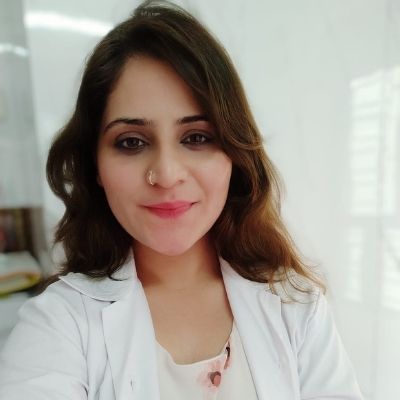What is Obsessive-Compulsive Disorder (OCD)?
What do you mean by obsession?
Obsessions are recurrent, unwanted, intrusive and distressing thoughts, images and impulses (urges). It is important here to understand that the person recognizes that these are his/her thoughts. Obsessions lead to significant distress and anxiety to the sufferers. For instance, repeated thoughts about harming or killing others or oneself can be really distress provoking for an individual. Obsessions by nature cause interference in one’s day to day functioning. An individual attempt to resists, ignore, suppress or neutralize them.
Send us a message

What can be the example of an obsession?
- Unwanted, repetitive thoughts regarding contamination
- Intrusive, recurrent doubts about daily activities like locking door, turning off the gas knobs, switching off electrical appliances
- Distressing and persistent concern about things not being properly aligned, symmetrical, or exact
- Unwanted, forbidden sexual thoughts, images or urges about strangers, family friends
- Harmful and aggressive thoughts and images
What are compulsions?
Often in response to the obsessions an individual performs a compulsion. Compulsions are repetitive behaviors or mental acts the person feels driven to perform. They are designed to prevent or reduce distress. In some cases, the compulsions are performed to prevent some dreaded event from occurring for instance, a person might repeatedly check the gas knobs to avoid a fire. Compulsions are not enjoyable and do not result in the completion of inherently useful tasks for example, ordering or rearranging things in a certain manner again and again might not culminate into anything meaningful.
How do I know do I have OCD or not?
When an individual suffers from OCD, the obsessions and compulsions interfere significantly with their day to day functioning often consuming a substantial amount of time and creating distress for the patient and their caregivers. For instance, wanting to take a long relaxing shower once in a while is not OCD however when everyday bathing is highly ritualized comprising a particular order with highly specific inflexible steps culminating into hours of being in the bathroom motivated by the thought of being infection free then this may be one of the symptoms experienced by an individual with obsessions related to contamination and cleaning compulsions.
How many people have OCD?
OCD impacts 1-3% of the population and is the fourth most common mental disorder. It is equally prevalent in both the sexes.
What is the biological basis of OCD?
OCD has a biological basis. The disorder is caused by certain biochemical changes occurring in the brain involving the neurotransmitter serotonin. Currently it is understood that individuals with OCD have dysregulation in the levels of serotonin. Similarly, there are various brain areas implicated in OCD with abnormalities implicated in regions of the frontal lobes, cingulum and basal ganglia. Heredity factors and environmental factors like stress play an important role in OCD.
What are the treatment options available for OCD?
A class of drugs has been found to be effective in the treatment of OCD are the serotonin reuptake inhibitors, the drugs act by increasing the level of serotonin in the neurons of the brain and hence this treatment corresponds to the cause of OCD which is the dysregulation of neurotransmitter serotonin. These medications have anti-obsessional qualities and have been potent in the treatment of OCD. When a clinician prescribes an SSRI they take into consideration the individual case history and also the side effects of different SSRI it is important to assert here that the side effects of SSRI are usually mild and manageable. However, the trials of medication encompassing the details of choice of drug, choice of most effective and best tolerated treatment and the optimal duration of treatment can only be made by the consultant psychiatrists On the psychological front Exposure and response prevention is the most often used therapy for OCD.
What is not an obsession?
- Being concerned about cleanliness is not an obsession
- Occasionally having doubts is not an obsession
- Liking things in order is not an obsession
- Being concerned about morality is not an obsession
What can be the example of a compulsion?
- Someone who immensely fears being contaminated might have repeated, ritualized hand washing, bathing, brushing
- Repeatedly checking door locks, gas knobs, electrical appliances in response to intrusive doubts
- Checking to prevent harm to self and others
- Ordering and arranging rituals in order to have things in symmetry
How does it usually manifest?
The individual may have obsessions pertaining to the fear of getting dirty, contaminated or infected by persons or things in the environment. In such cases they generally express concern over bodily secretions and disgust over waste or sticky substance. These obsessions are usually associated with cleaning compulsions. They are likely to indulge in repeated hand-washing and may consume many hours of the day cleaning their hands, they may take unusually long time to bathe or for cleaning items in the house. All these compulsions might follow some stringent rituals.
Pathological doubts can often present as doubts regarding door locks or gas knobs and are usually associated with checking compulsions which are usually performed to avoid a feared catastrophe. Their need to check repeatedly is driven by the possibility that something terrible will happen even though they recognize that the possibility is an extremely remote one. For instance, the compulsion of checking the gas multiple times before leaving the kitchen might arise out of the thoughts that in case the individual does not act responsibly a fire might break and the whole house will burn. The thought itself is so anxiety provoking for the individual that even though they spend substantial time in checking they are rarely satisfied.
Then the need for symmetry and exactness is often manifested as concern about things not being properly aligned, symmetrical or perfect. There is a constant preoccupation to have objects arranged in a certain order or position. They are constantly disturbed and discontented until they put things in perfect order. The associated compulsions include continually ordering and arranging things. They may spend hours arranging their work table before the actually sit down to work and till they are satisfied that everything is in the right place.
Presence of forbidden thoughts like blasphemous thinking, recurring sexual thoughts or images, fear of blurting out obscenities can be associated with outward compulsions like washing hands or even mental compulsions like praying, replacing bad thought with good thought because most often the obsessions make the patient feel immensely guilty.
Sometimes compulsions can also be in the form of repeating or counting. Such individuals might spend a lot of time repeating a certain task several time. Similarly, some would count the number of tiles on the floor as they enter a room.
How long do I have to continue the treatment?
The definite time required to treat OCD is not clear and often case and symptom dependent however the treatment does continue for 1-2 years and the clinician observes if the symptoms reappear. OCD is a chronic condition but it is treatable and adequate improvement in the condition is possible if the person takes guidance from a treating clinician and demonstrates compliance for treatment.
Best Treatment of Obsessive-Compulsive Disorder (OCD) in Delhi & Noida
rTMS in
Obsessive-Compulsive Disorder (OCD)
- The man should be the sexual leader
- Masturbation is wrong
- A woman should not initiate sex
- Men should not express their emotions
- A woman should always have sex when her partner makes sexual
- approaches
- All physical contact must lead to sex
- Good sex leads to a wild orgasm
- A man feels like having sex at any time
- Sex equals intercourse
Medications in Obsessive-Compulsive Disorder (OCD)
- Sex happens automatically
- A `respectable’ woman should not enjoy sex too much and should
- certainly never masturbate
- All other couples have sex several times a week; have orgasm every time
- they have sex & orgasm simultaneously
- There must be something wrong with the relationship if sex is not good
- Cultural beliefs about formation of Semen and genital secretions
Psychotherapy in Obsessive-Compulsive Disorder (OCD)
- Role of ‘Physical strength’ or ‘Muscle power’ in sexual performance
- Size of the penis
- Circumcision and sexual performance
- Bending of Penis
- Vasectomy/tubectomy decreases sexual potency
- Drugs enhance sexual potency in normal persons
- Porn increases sexual drive
FAQ
Through its mental health counseling services, Psymate connects clients seeking mental wellness solutions with the experts like mental health psychologists, mental health counselors, and mental health therapists.
Psymate utilizes end-to-end encryption to ensure that your data is secure and not misused or shared with third parties. Psymate strives to provide standard online mental health counseling.
We provide information on mental health therapists like their experience, education, ratings, etc. This allows you to make more informed decisions and choose the best mental health counsellor for you.
Our payment gateway uses industry standard procedure and guidelines so as to provide secure online mental health counseling services.
The main languages in which Psymate provides therapy are Hindi and English.
If you’re looking for a Psychotherapist, go to the Psymate website’s Therapist section and discover the best therapist or counselor or you can simply contact Psymate, and the professionals will recommend the ideal therapist for you.
Psymate offers counseling in three modes: online, offline, and hybrid. This means that you can get counseling without having to leave your home, as well as face-to-face in the clinic. Psymate is a platform that connects you with a team of compassionate and dedicated psychologists who provide a secure and confidential environment and a convenient and inexpensive way to connect with you. Psymate also ensures your privacy and confidentiality by adhering to the highest standards, including HIPAA certification.
Psymate can assist you in booking an online appointment with one of India’s best psychologists. Psymate’s purpose is to assist you in resolving your emotional and mental health difficulties and regaining control of your life so that you can live a healthy and happy life.
Counseling at Psymate is seamless and discreet. It is completely secure and confidential.
The client can choose from a wide range of mental health counselor, mental health psychologist and mental health therapist and get online counselling for psychological issues at the time and place of their own convenience
Psymate offers a variety of mental health counsellors who are trained, skilled, and certified therapists.
Psymate attempts to reduce costs in order to provide affordable mental health counselling services, and as a result, the client has the option of reviewing the profiles of numerous mental health therapists and selecting the most suitable mental health counsellor.
Visit the Therapist section to consult with the best online psychologist in India. The website will provide information for India’s best online psychologists.
The Psymate platform offers access for you to talk to a psychologist online. Any mental health conditions like Stress, Depression, Bipolar Disorder, Anxiety disorders, OCD, Post-traumatic stress disorder, Personality Disorders, Sleep Disorders, Sexual Disorders, Relationship Issues, etc. can be discussed with Psychologists.
You can either schedule a Psychologist’s earliest available appointment or let us do it for you by pairing you with the best Psychologists for your treatment.
Psymate’s counseling platform connects you with India’s best psychologists.Psymate has a team of licensed clinical and counseling psychologists on board.
This is the best question a person can ask. If you are dealing with psychological disorders such as depression, anxiety, phobias, family troubles, panic attacks, stress, and so on, you must address them as soon as possible.
Counseling and Therapy is a type of mental health intervention that entails sessions in which people can express and discuss their experiences. Because there is no third-party intervention in the process, it is straightforward and comfortable.
Psymate offers a variety of counseling services, including clinical therapy. Relationship counseling, stress, anxiety, depression, OCD, Therapy for Children and Teenagers, and more services are available.







